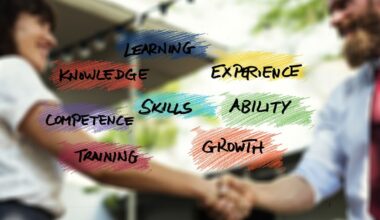Technical skills are undeniably important in today’s job market. But what separates good employees from exceptional ones? The answer lies in a set of intangible qualities known as soft skills. These skills encompass your personality traits, communication abilities, and work ethic – all of which play a crucial role in navigating the complexities of the workplace and building successful professional relationships.
This article delves into the top 7 soft skills essential for workplace success, providing insights and actionable tips to help you develop and refine these valuable assets.
1: Communication: The Bedrock of Effective Collaboration
Communication is the cornerstone of any successful professional interaction. It encompasses both verbal and non-verbal cues – your ability to articulate your thoughts, ideas, and concerns clearly and concisely. Active listening is equally important – paying close attention to what others are saying, asking clarifying questions, and demonstrating genuine understanding. Effective communication fosters collaboration, builds trust with colleagues, and ensures that projects progress smoothly.
Tips for Improvement: Practice active listening by summarizing key points and asking follow-up questions. Tailor your communication style to your audience, and be mindful of non-verbal cues like body language and eye contact. Embrace opportunities to present your ideas in meetings or give training sessions.

2: Teamwork: The Power of “We” Over “Me”
The modern workplace thrives on collaboration. Teamwork allows you to leverage the diverse strengths of your colleagues, fostering innovation and achieving goals that might be impossible to achieve alone. Being a team player involves being supportive, dependable, and willing to share credit for successes. It also means being open to feedback and constructive criticism, and fostering a positive and collaborative work environment.
Tips for Improvement: Offer your help and expertise to colleagues when needed. Be open to different perspectives and approaches. During brainstorming sessions, actively participate and contribute ideas. Celebrate team achievements, acknowledging the collective effort involved.
3: Problem-Solving: Untangling the Knots
The ability to identify, analyze, and solve problems effectively is a highly valued skill in any workplace. This involves approaching challenges with a critical eye, analyzing underlying causes, and developing creative solutions. Effective problem solvers are often resourceful, able to think outside the box and adapt their approach when necessary.
Tips for Improvement: Develop a structured approach to problem-solving, such as the 5 Whys technique (asking “why” five times to get to the root cause). Practice brainstorming solutions with colleagues to leverage diverse perspectives. Be proactive in anticipating potential problems and developing contingency plans.

4: Critical Thinking: Seeing Beyond the Surface
Critical thinking is the ability to analyze information objectively, question assumptions, and make sound judgments. It involves evaluating evidence, recognizing biases, and formulating well-reasoned conclusions. Critical thinkers are adept at making informed decisions, weighing risks and benefits, and considering different perspectives.
Tips for Improvement: Read widely on various topics to broaden your knowledge base and expose yourself to diverse viewpoints. Ask questions to gain a deeper understanding of complex issues. Practice reframing problems from different angles to identify potential solutions.
5: Adaptability: Embracing Change in a Dynamic World
The ability to adapt to change is crucial for workplace success. The modern business landscape is constantly evolving, requiring employees to be flexible and open to new ideas, processes, and technologies. Embrace new learning opportunities, be willing to step outside your comfort zone, and adjust your approach as needed.
Tips for Improvement: Maintain a positive and solution-oriented attitude when faced with change. Seek out opportunities to learn new skills and develop your knowledge base. Be open to feedback and willing to adjust your approach based on changing circumstances.

6: Time Management: Mastering the Art of Efficiency
Effective time management involves prioritizing tasks, organizing your workload, and ensuring you meet deadlines consistently. Being a good time manager allows you to be productive, reduce stress, and maintain a healthy work-life balance. Utilize scheduling tools and to-do lists to stay organized.
Tips for Improvement: Set realistic goals and deadlines for your tasks. Identify your most productive times of the day and schedule demanding tasks accordingly. Minimize distractions by avoiding multitasking and limiting social media use during work hours.
7: Emotional Intelligence: Understanding Yourself and Others
Emotional intelligence (EQ) refers to your ability to understand, manage, and express your own emotions, as well as recognize and respond to the emotions of others. It encompasses self-awareness, empathy, and social skills. Individuals with high EQ are adept at building rapport, navigating difficult conversations, and managing conflict effectively.
Tips for Improvement: Practice self-awareness through mindfulness techniques like meditation and journaling. Develop empathy by actively listening to others and trying to understand their perspectives. Refine your social skills by practicing clear communication, assertiveness, and building positive relationships with colleagues.
Conclusion
Soft skills are not inherent talents; they are honed through practice, self-reflection, and continuous learning. By actively developing these seven essential soft skills, you can elevate your workplace performance, build stronger relationships with colleagues, and position yourself for professional success. Remember, soft skills are often the differentiators that separate good employees from exceptional ones. Invest in yourself, cultivate these valuable assets, and watch your career flourish.










